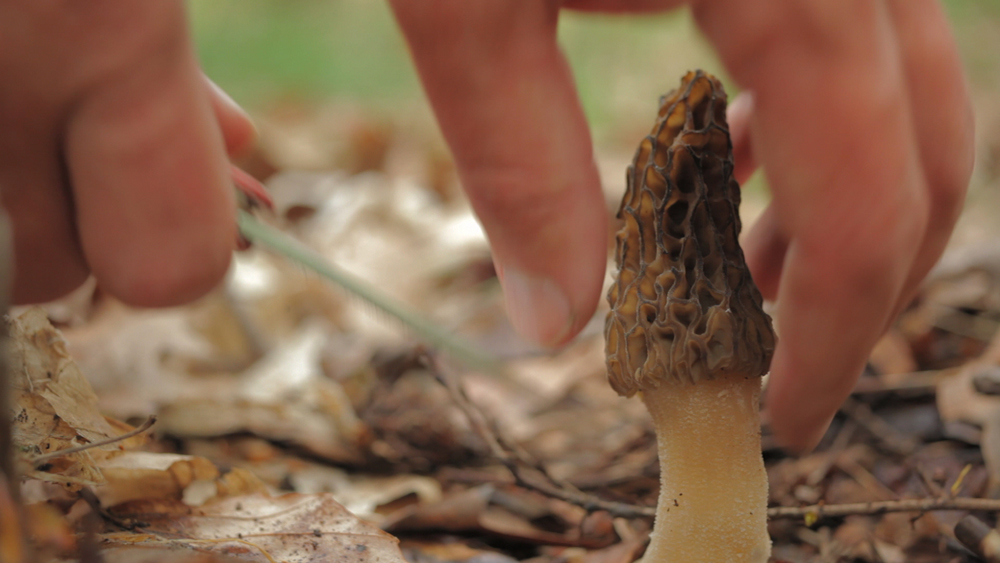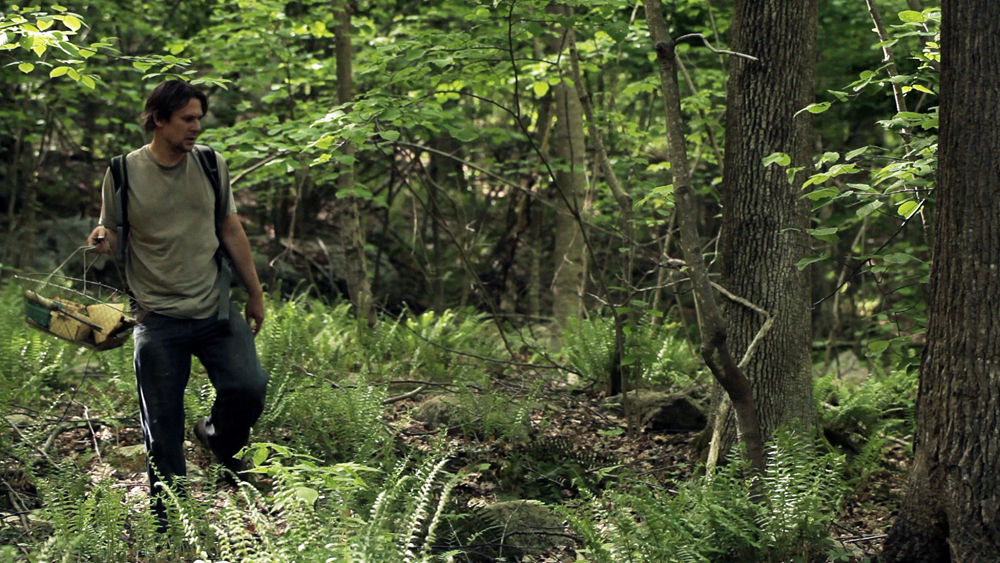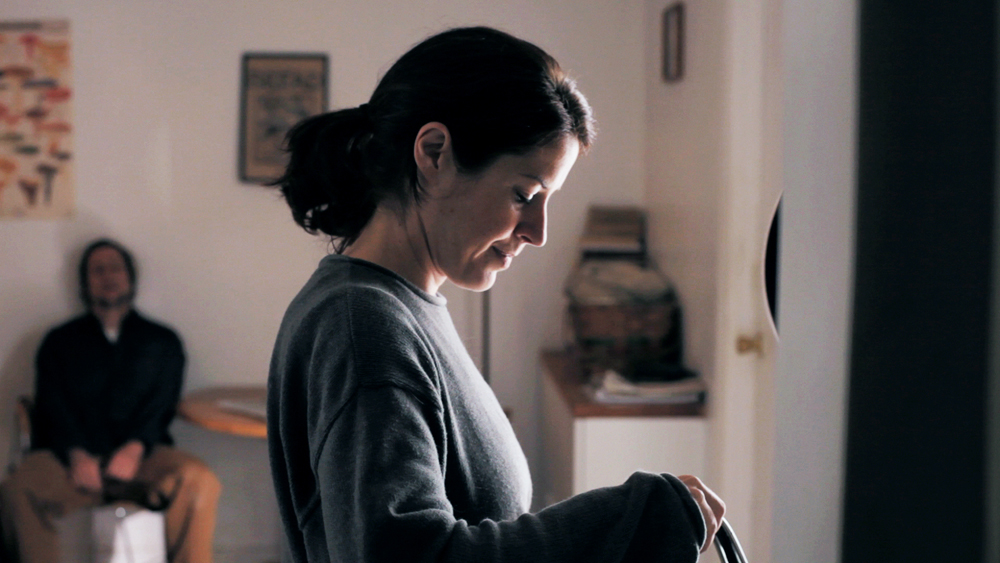
I think we can all agree that it's been a rough five years. The warm economy of the 00's bottomed out. The fierce partisan battles of that first decade settled into a kind of sullen mutual indifference. Many of us have lost our jobs, or failed to move forward in the ones we were lucky enough to keep. Plans got scaled back, ambitions shrank. Things didn't turn out great.

Now, Forager: gathering a black morel
Jason Cortlund and Julia Halperin's Now, Forager replays the discontents of the era in beautifully observed microcosm. A foodie film oriented toward the making rather than the eating, Now, Forager's opening gambit is to occupy the high-stress, low-margin universe of the restaurant and its independent small-scale suppliers. It is an environment which is rewarded rapidly when times are good, and crashes when they aren't. Its citizens are canaries in the economic coal mine. The restaurateurs in the film are aware of dining room traffic as a kind of low environmental hum; their level of anxiety varies with the number of customers seated at any given time.
Within this context, the diverging personal choices available in a failing economy play out as the sad drama of an unraveling marriage. Lucien (Jason Cortlund) and Regina (Tiffany Esteb) Echevarría are foragers - expert mushroom harvesters who haunt the forests of New Jersey and Long Island and sell to restaurants in Manhattan and Brooklyn. This is a classical dichotomous setup dating at least to Shakespeare: the moral contrast of city and country.
The country half of the equation is a world of easily-missed but shocking beauty: the film, lovingly shot by Jonathan Nastasi over the course of a year, introduces the viewer to the close-up, ground-level study of shifting weather and light, of mushrooms and rotting wood, leaves and insects, forest reptiles and birds.

Now, Forager: Lucien Echevarría in the woods
Cortlund and Halperin treat the reciprocal city environment with equal affection. In the city the characters find their support network, a community of fellow food-aesthetes. A minor character, smelling a fresh mushroom, remarks that he can smell the wood tanins. Such is the lucid direction of the scene that he comes off, not as a jackass, but as a guileless enthusiast.

Now, Forager: Regina Echevarría in Brooklyn
The diverging personal choices come into play in how Lucien and Regina want to respond to their failing truck, falling income, and uncertain future. Regina instinctively seeks refuge in the city, turning to steady work and the companionship of other foodies for security. Lucien, contrarily, wishes to drop off the grid altogether and live out the unkillable fantasy of Walden Pond.
Such is the forbearance of the film that neither choice "wins," and neither loses either. Lucien meets with bitter reversals and a dawning awareness of the cost of his misanthropic perfectionism. Regina works in good kitchens and bad ones. Both characters wear down under the pressure of running out of time to find an acceptable way to live. We walk beside each of them through their tiny, quiet journeys, alternately hopeful and frustrated for each.
The strength of the film's thematic superstructure is repeated at the tiny level of its grace notes. Two, particularly, I would like to draw your attention to:
Lucien is a restless and angry character. At one point, we see him in the woods, cooking himself an omelette from ingredients he has just gathered. He sits down in his camper chair, leg shaking, shoulders hunched. He takes a bite - and stops. He simply stops. We watch the tension leave his body, watch sudden calm replace his rage. We ourselves do not need to be foodies to see what food means to him here, what it does for him. It saves him.
The second is an apology, uttered late in the film by a character who has been notably expressionless. This expressionlessness has heightened our ability to see any shift at all in the character's mood. And when he apologizes, just for a moment, his chin wobbles, like a small child who is about to cry. That's it, that's all we need - but it's dazzling. It makes our heart break for this character, and, in a way, for ourselves. It suggests that there is something salvagable at the end of this long, long five years.
Now, Forager, shot on no money in the middle of nowhere, self-assembles something profound and elegant from the meagerest of materials. It is tempting to say that it replicates the avocations of its heroes, who dig up exquisite food where no one would think to look. But this does an injustice to Cortlund and Halperin; they have simply applied a disciplined and sympathetic eye to their subject, and told a story they believe in. They could tell another story about something else, and do the same fine job. I myself am looking forward to it.
SCREENINGS: http://nowforager.com/screenings/ (looks like you're next, LA and Chicago)
